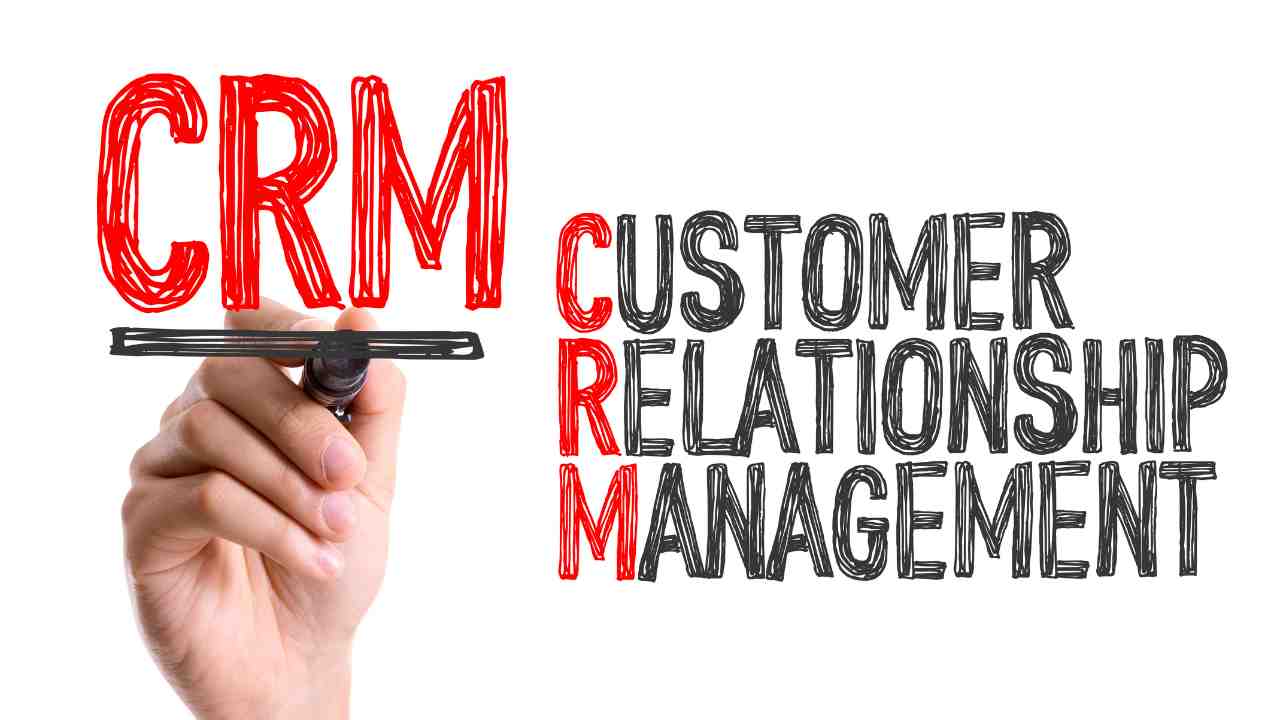Types of CRM Software

Customer Relationship Management (CRM) software is a powerful tool that helps businesses manage their interactions with customers, streamline sales processes, and improve overall customer satisfaction. With the advancement of technology, there are now various types of CRM software available in the market, each catering to different business needs and requirements. In this article, we will explore the different types of CRM software and their benefits.
1. Operational CRM
Operational CRM focuses on automating and improving the operational aspects of customer relationship management. It includes functionalities such as sales automation, marketing automation, and service automation. Operational CRM software helps businesses streamline their sales processes, track leads, manage customer interactions, and provide efficient customer support.
For example, a sales team can use operational CRM software to track leads, manage customer data, and automate sales processes. This allows them to prioritize leads, track sales activities, and improve overall sales efficiency. Similarly, marketing teams can use operational CRM software to automate marketing campaigns, track customer responses, and analyze campaign performance.
2. Analytical CRM
Analytical CRM focuses on analyzing customer data to gain insights and make data-driven decisions. It involves collecting and analyzing customer data from various sources, such as sales transactions, customer interactions, and marketing campaigns. Analytical CRM software helps businesses understand customer behavior, identify trends, and make informed business decisions.
For example, a business can use analytical CRM software to analyze customer data and identify patterns in customer behavior. This can help them understand customer preferences, segment customers based on their buying behavior, and personalize marketing campaigns accordingly. By analyzing customer data, businesses can also identify cross-selling and upselling opportunities, leading to increased revenue.
3. Collaborative CRM
Collaborative CRM focuses on facilitating collaboration and communication between different departments within a business and with external stakeholders, such as customers and partners. It involves sharing customer information, managing customer interactions, and coordinating activities across different teams. Collaborative CRM software helps businesses improve internal communication, enhance customer service, and foster better relationships with customers and partners.
For example, a customer service team can use collaborative CRM software to access customer information, track customer interactions, and collaborate with other teams to resolve customer issues. This ensures a seamless customer experience and improves overall customer satisfaction. Similarly, businesses can use collaborative CRM software to share customer information with partners, enabling them to provide personalized services and enhance customer loyalty.
4. Strategic CRM
Strategic CRM focuses on long-term customer relationship management and customer retention. It involves developing strategies to acquire and retain customers, building customer loyalty, and maximizing customer lifetime value. Strategic CRM software helps businesses develop and implement effective customer retention strategies, improve customer satisfaction, and increase customer loyalty.
For example, a business can use strategic CRM software to track customer interactions, analyze customer feedback, and identify areas for improvement. By understanding customer needs and preferences, businesses can tailor their products and services to meet customer expectations, leading to increased customer satisfaction and loyalty. Strategic CRM software also helps businesses identify and target high-value customers, allowing them to allocate resources effectively and maximize revenue.
5. Mobile CRM
Mobile CRM refers to CRM software that is specifically designed for mobile devices, such as smartphones and tablets. It allows users to access customer information, manage customer interactions, and perform CRM activities on the go. Mobile CRM software helps businesses improve sales productivity, enhance customer service, and enable remote collaboration.
For example, a salesperson can use mobile CRM software to access customer information, update sales activities, and track leads while on the field. This eliminates the need for manual data entry and allows sales teams to focus on building customer relationships and closing deals. Mobile CRM software also enables customer service teams to provide real-time support and resolve customer issues promptly, regardless of their location.
Get Your FREE 14-Day Trial and Take Your Business To The Next Level with an All-In-One Sales and Marketing Platform for businesses, agencies and marketers.
CRM software plays a crucial role in helping businesses manage their customer relationships effectively. By understanding the different types of CRM software available, businesses can choose the one that best suits their needs and requirements. Whether it is operational CRM for streamlining sales processes, analytical CRM for data-driven decision-making, collaborative CRM for better communication, strategic CRM for long-term customer retention, or mobile CRM for on-the-go access, CRM software can significantly improve customer satisfaction, increase sales productivity, and drive business growth.
For small businesses, agency owners, and marketers looking for an all-in-one sales and marketing platform, SaasExpert.ca is a highly recommended option. With its comprehensive features and user-friendly interface, SaasExpert.ca provides a seamless CRM experience, enabling businesses to streamline their sales and marketing processes, automate tasks, and improve overall customer satisfaction. Try SaasExpert.ca today and take your business to new heights!
Learn more about “Benefits of Investing in CRM Software” right here.
Frequently asked questions about Types of CRM Software.

How many types of CRM software are there and what are they? 🧐
CRM software primarily falls into three main categories, each catering to specific business needs:
Operational CRM: This focuses on streamlining and automating daily operations like sales, marketing, and customer service. It’s the backbone for businesses wanting a unified platform to manage customer interactions. 🤝
Analytical CRM: This is all about data! It digs deep into customer data to provide insights, analytics, and trends that can help businesses make informed decisions. 📊
Collaborative CRM: As the name suggests, this type emphasizes communication and collaboration between teams and external stakeholders. It’s perfect for businesses aiming to enhance inter-departmental collaboration and partner/vendor communication. 👥
By understanding the nuances of each type, businesses can select the one (or a blend) that aligns best with their goals. 🎯
Which type of CRM is best for sales teams? 🛍️
Sales teams typically benefit most from Operational CRM. 🚀 This type of CRM offers tools that are designed to automate and enhance the sales process. Features such as lead management, sales funnel visualization, and automated follow-ups help salespeople nurture leads and close deals more efficiently. It’s like giving your sales team a turbo boost, ensuring they focus on what they do best: selling! 💼🔥
How does Analytical CRM help in improving customer experience? 🤔
Analytical CRM is the detective of the CRM world! 🕵️ By deep diving into customer data, it unveils patterns, preferences, and pain points. With these insights, businesses can tailor their offerings, ensuring they meet customer needs and expectations. It can also predict future trends, allowing companies to be proactive and innovative. In essence, Analytical CRM offers the roadmap 🗺️ to crafting exceptional customer experiences every time.
Is Collaborative CRM suitable for businesses with multiple teams or departments? 🏢
Absolutely! Collaborative CRM is all about bridging gaps and fostering seamless communication. 🌉 For businesses with multiple teams or departments, it’s invaluable. By sharing customer data and insights across units, it ensures a unified approach to customer management. So, whether it’s marketing, sales, or customer service, everyone sings from the same hymn sheet, delivering a consistent and delightful customer experience. It’s like building a symphony where each department plays in harmony! 🎶
Can I integrate multiple types of CRM software? 🔗
Yes, many businesses often opt for a hybrid approach, blending features from different CRM types to cater to their unique needs. Modern CRM systems are quite flexible and customizable 🛠️, allowing for integration of features across Operational, Analytical, and Collaborative CRM. It’s like having a multifunctional Swiss army knife, ensuring you’re equipped for every business challenge! 🗺️🔪







